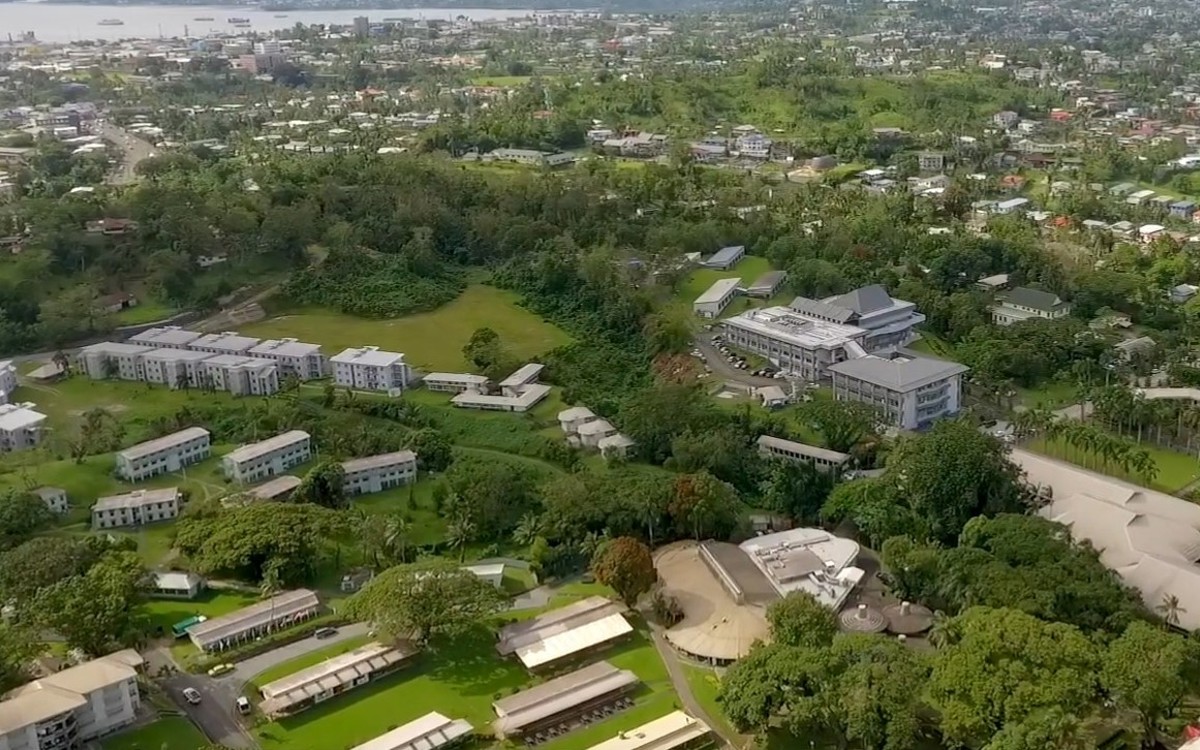By University of the South Pacific, Fiji

This is the first time in USP’s history that we are actively engaging with students and staff of national and regional campuses in creating awareness and having positive conversations on the topic under the direction of the Diversity, Equity and Inclusive Committee. Thank you to the ACU for starting our journey.’

Sexual harassment is a serious and widespread problem. Globally, it is estimated that a staggering one in three women will experience physical or sexual abuse in their lifetime.
Despite these sobering statistics, prevention is possible. At ACU member universities across the Commonwealth, staff and students are already successfully combating the risk of sexual harassment through conversations, initiatives and policies that promote safety, respect, and equality. By promoting safe behaviours, gender-sensitive policies and healthy relationships, we can help create safe and equitable societies where every person is treated with respect.
In 2019, Dr Akanisi Kedrayate from the University of the South Pacific (USP), Fiji received an ACU Gender Grant to fund a new learning initiative aimed at promoting gender equality, increasing awareness of sexual harassment, and creating a safer, more equitable university environment.
This was the first time in USP’s history that it actively engaged with students and staff on this crucial issue. Sexual harassment and bullying awareness workshops were held at the USP campus in Suva, Fiji, followed by workshops at the Vanuatu campus, to educate staff and students on acceptable gender-sensitive behaviour. The workshops covered a wide range of issues including sexual harassment and bullying, gender discrimination, and the importance of prevention and reporting.
The sessions featured experiential exercises and roleplaying to illustrate instances of sexual harassment and bullying in the workplace, academic settings, and campus accommodation. This was followed by in-depth discussions exploring what type of harassment this was, how it could be addressed, and the impacts on the parties involved.
15 student leaders, selected based on their passion to drive positive change, also received additional training on how to educate the wider student population on gender-related issues. The group was trained in gender mainstreaming, particularly around gender discrimination, sexual harassment, and gender-based violence. As a result, the students have now assumed the role of Gender Champions within their respective campuses and wider communities, forming a strong advocacy community to further spearhead gender equality at USP.
A lasting impact
In addition to the creation of Gender Champions acting as agents of change for the university, following the initiative USP successfully updated its sexual harassment, anti-bullying, and child protection policies, as Dr Akanisi Kedrayate explains:
In 2020 we worked on the policies on sexual harassment, anti-bullying, and child protection. These three policies were finally approved by Council in November 2020 and have the positive support of the Vice-Chancellor and senior management at USP. This has provided the confidence and opportunity for us to plan and conduct virtual workshops at the regional campuses and also on the main campus.’

Additionally, to assist anyone feeling harassed or unsafe within the university, a hotline has been created that is open to all students and staff based in Fiji. Student association bodies have also organised a Diversity and Inclusion Week, prompting further discussions around harassment and bullying, female empowerment, and gender orientation.
As well as raising awareness of unacceptable behaviours and promoting important conversations on campus, the project made clear that USP has a zero-tolerance policy towards sexual harassment regardless of the position or seniority of those involved.
Since launching, this awareness-raising initiative has received an overwhelmingly positive response from students, staff and other stakeholders, with the Campus Director welcoming the positive progress made in openly discussing sexual harassment and bullying. Before this, these topics had never been discussed in such an open and frank way at USP, due to cultural and religious sensitivities. However, students and staff have welcomed these discussions, with many reporting that they felt empowered and enriched as a result.
Continued progress
Building on the momentum of the ACU-funded project, additional activity is now underway at USP’s regional and main campuses. Following COVID-19 and the shift to online teaching, in August 2021 the university commenced a rollout of virtual gender awareness workshops for staff at the Solomon Islands campus. The virtual workshops were facilitated via Zoom and attracted a total of 24 staff members along with student representatives in each group.
These Zoom workshops were very interactive, engaging, and provided a forum where participants can talk freely because the groups are small.’

Also in the pipeline are nine virtual workshop sessions for the Samoa campus, followed by the Vanuatu, Kiribati, Tonga, Labasa, Lautoka, Marshall Islands, Tuvalu, Nauru, Niue and Tokelau campuses. They intend to cover all 14 campuses by the end of the year.
The initiatives at USP aimed to increase knowledge and strengthen capacity in gender-related areas starting with students and staff, with the goal that awareness would spread to the families and communities of participants, causing a ripple effect. Although behavioural and societal change takes time, notably there is already evidence of this happening. The university was recently asked to deliver sexual harassment training within the wider community, working with local businesses including CHEC Construction and the Asian Development Bank to provide training to their staff and workers – a testament to the project’s far-reaching impact.
The impact of USP’s initiatives in a relatively short space of time is a heartening reminder of the power of grassroots activities to effect positive change. Through efforts such as this, universities – and the people who study and work within them – can act as a catalyst for meaningful change in their communities and help to build a more just and gender equal world.
Since 2016, 49 ACU member institutions in 22 countries have benefited from an ACU Gender Grant, with more than 800 individuals participating in initiatives and workshops designed to tackle issues such as sexual harassment and gender-based violence.

